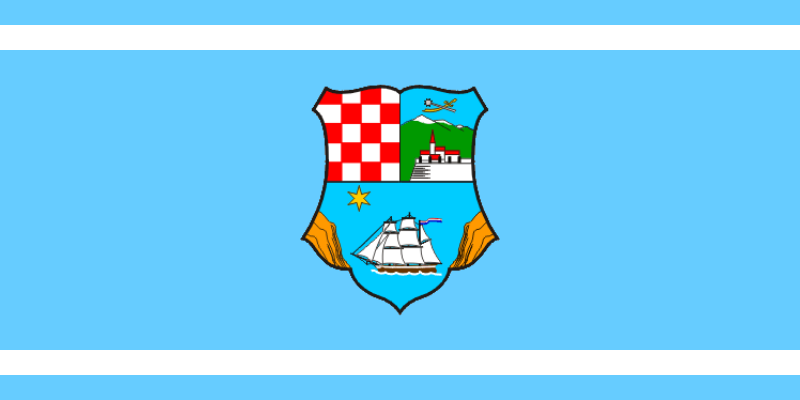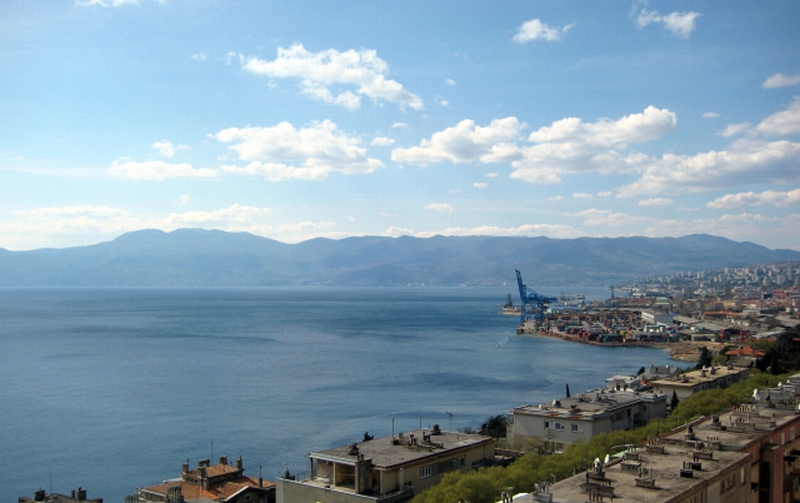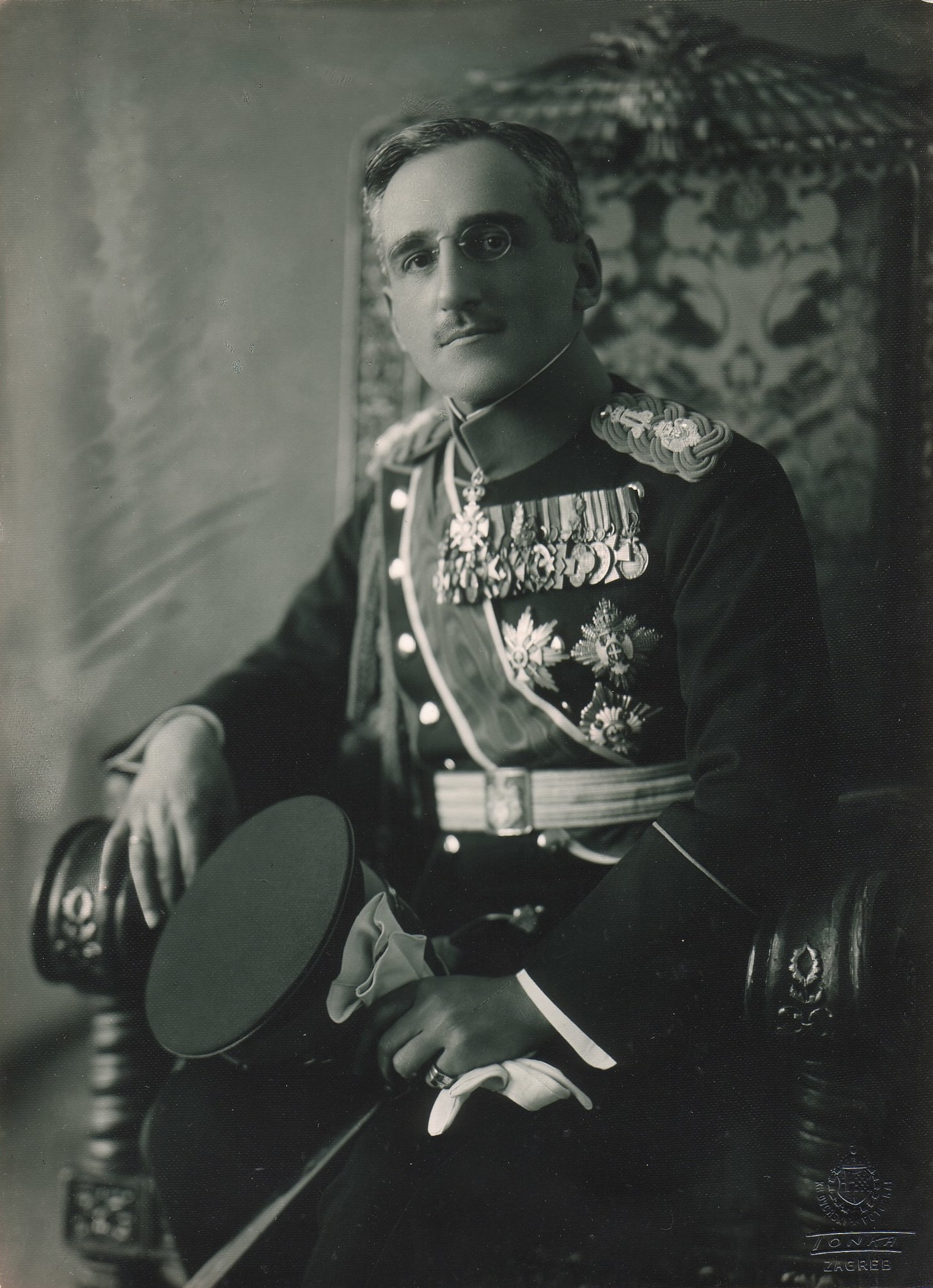|
Cezar Akačić
Cezar Akačić (29 May 1868 – 6 September 1935) was a Croatian and Yugoslavian politician. He graduated pharmacy from the Zagreb University. He became the deputy head of the union of the Croatian Sokol movement societies in 1906. Akačić was an associate of Frano Supilo and a member of the Mile Starčević faction of the Party of Rights. He was elected to the Croatian Sabor in the 1910 Croatian parliamentary election in the district of Ivanec. Subsequently, Akačić became the deputy president of the party, and the chairman of its publishing company. In the final days of the World War I, Akačić was appointed a member of the National Council of Slovenes, Croats and Serbs—the political body which took the role of the provisional legislative and ruling body in the South Slavic areas of former Austria-Hungary organised as the State of Slovenes, Croats and Serbs. The National Council named him commissioner for postal, telegraph, and telephone services. In this capacity, Akač ... [...More Info...] [...Related Items...] OR: [Wikipedia] [Google] [Baidu] |
Bakar, Croatia
Bakar is a town in the Primorje-Gorski Kotar County in western Croatia. The population of the town was 8,279 according to the 2011 Croatian census, including 1,473 in the titular settlement. Ninety percent of the population declared themselves Croats by ethnicity. The largest ethnic minority are the Serbs with 2.91% of the population. The old part of Bakar is situated on a hill overlooking the Bay of Bakar. is the Croatian language, Croatian word for "copper". Bakar is a port for bulk cargo and used to be known for its industrial complex that included a coke (fuel), coke factory, which produced a considerable amount of pollution. Bakar's coke factory was closed in 1995 and the area's pollution has subsided significantly. The historical core of Bakar was registered as a cultural monument in 1968. Municipality Climate Since records began in 1997, the highest temperature recorded at the local weather station was , on 19 July 2007. The coldest temperature was , on 3 February 201 ... [...More Info...] [...Related Items...] OR: [Wikipedia] [Google] [Baidu] |
1910 Croatian Parliamentary Election
Parliamentary elections were held in the Kingdom of Croatia-Slavonia on 28 October 1910 to elect the members of the Sabor. The elections were called by ban Nikola Tomašić after the adoption of a new Law of the Electoral Order. Results Elected representatives Croatian Peoples' Peasant Party *Vinko Lovreković Party of Rights *Franjo Hrustić Notes References *Ivo Perić, ''Hrvatski državni sabor 1848.-2000.'' 2nd volume. Dom i svijet. Zagreb, 2000. (pg. 372) {{Croatian elections Elections in the Kingdom of Croatia-Slavonia Croatia Parliamentary Croatia Croatia, officially the Republic of Croatia, is a country in Central Europe, Central and Southeast Europe, on the coast of the Adriatic Sea. It borders Slovenia to the northwest, Hungary to the northeast, Serbia to the east, Bosnia and Herze ... Election and referendum articles with incomplete results ... [...More Info...] [...Related Items...] OR: [Wikipedia] [Google] [Baidu] |
Croatian Littoral
Croatian Littoral () is a historical name for the region of Croatia comprising mostly the coastal areas between traditional Dalmatia to the south, Mountainous Croatia to the north, Istria and the Kvarner Gulf of the Adriatic Sea to the west. The term "Croatian Littoral" developed in the 18th and 19th centuries, reflecting the complex development of Croatia in historical and geographical terms. The region saw frequent changes to its ruling powers since classical antiquity, including the Roman Empire, the Ostrogoths, the Lombards, the Byzantine Empire, the Frankish Empire, and the Croats, some of whose major historical heritage originates from the area—most notably the Baška tablet. The region and adjacent territories became a point of contention between major European powers, including the Republic of Venice, the Kingdom of Hungary, and the Habsburg and Ottoman Empires, as well as Austria, the First French Empire, the Kingdom of Italy, and Yugoslavia. Geography Croatian Li ... [...More Info...] [...Related Items...] OR: [Wikipedia] [Google] [Baidu] |
Istria
Istria ( ; Croatian language, Croatian and Slovene language, Slovene: ; Italian language, Italian and Venetian language, Venetian: ; ; Istro-Romanian language, Istro-Romanian: ; ; ) is the largest peninsula within the Adriatic Sea. Located at the top of the Adriatic between the Gulf of Trieste and the Kvarner Gulf, the peninsula is shared by three countries: Croatia, Slovenia, and Italy,Marcel Cornis-Pope, John Neubauer''History of the literary cultures of East-Central Europe: junctures and disjunctures in the 19th And 20th Centuries'' John Benjamins Publishing Co. (2006), Alan John Day, Roger East, Richard Thomas''A political and economic dictionary of Eastern Europe'' Routledge, 1sr ed. (2002), 90% of its area being part of Croatia. Most of Croatian Istria is part of Istria County. Geography The geographical features of Istria include the Učka/Monte Maggiore mountain range, which is the highest portion of the Ćićarija/Cicceria mountain range; the rivers Dragonja/Dragogna, ... [...More Info...] [...Related Items...] OR: [Wikipedia] [Google] [Baidu] |
Paris Peace Conference (1919–1920)
The Paris Peace Conference was a set of formal and informal diplomatic meetings in 1919 and 1920 after the end of World War I, in which the victorious Allies set the peace terms for the defeated Central Powers. Dominated by the leaders of Britain, France, the United States and Italy, the conference resulted in five treaties that rearranged the maps of Europe and parts of Asia, Africa and the Pacific Islands, and also imposed financial penalties. Germany, Austria-Hungary, Turkey and the other losing nations were not given a voice in the deliberations; this later gave rise to political resentments that lasted decades. The arrangements made by this conference are considered one of the greatest watersheds of 20th century geopolitical history which would lead to World War II. The conference involved diplomats from 32 countries and nationalities. Its major decisions were the creation of the League of Nations and the five peace treaties with the defeated states. Main arrangements ... [...More Info...] [...Related Items...] OR: [Wikipedia] [Google] [Baidu] |
Temporary National Representation
The Temporary National Representation (), also the Interim National Legislation and the Interim National Parliament, was the first legislative body established in the Kingdom of Serbs, Croats and Slovenes. It was created by the decree of Prince Regent Alexander on 24 February 1919, and convened on 1 March. Its 294 members were appointed by various provincial and regional assemblies or commissions. The main product of its work was the act regulating the election of the Constitutional Assembly. The body's work ceased after the election held on 28 November 1920. The seats in the Temporary National Representation were distributed by province and then assigned to various political parties depending on their representation in provincial and regional legislative bodies prior to the establishment of the Kingdom of Serbs, Croats and Slovenes. The greatest number of seats were assigned to the Democratic Party and the People's Radical Party. The largest traditionally Slovene politica ... [...More Info...] [...Related Items...] OR: [Wikipedia] [Google] [Baidu] |
Kingdom Of Serbs, Croats And Slovenes
The Kingdom of Yugoslavia was a country in Southeast and Central Europe that existed from 1918 until 1941. From 1918 to 1929, it was officially called the Kingdom of Serbs, Croats, and Slovenes, but the term "Yugoslavia" () has been its colloquial name as early as 1922 due to its origins. "Kraljevina Jugoslavija! Novi naziv naše države. No, mi smo itak med seboj vedno dejali Jugoslavija, četudi je bilo na vseh uradnih listih Kraljevina Srbov, Hrvatov in Slovencev. In tudi drugi narodi, kakor Nemci in Francozi, so pisali že prej v svojih listih mnogo o Jugoslaviji. 3. oktobra, ko je kralj Aleksander podpisal "Zakon o nazivu in razdelitvi kraljevine na upravna območja", pa je bil naslov kraljevine Srbov, Hrvatov in Slovencev za vedno izbrisan." (Naš rod ("Our Generation", a monthly Slovene language periodical), Ljubljana 1929/30, št. 1, str. 22, letnik I.) The official name of the state was changed to "Kingdom of Yugoslavia" by King Alexander I on 3 October 1929. The pre ... [...More Info...] [...Related Items...] OR: [Wikipedia] [Google] [Baidu] |
Postage Stamp
A postage stamp is a small piece of paper issued by a post office, postal administration, or other authorized vendors to customers who pay postage (the cost involved in moving, insuring, or registering mail). Then the stamp is affixed to the face or address-side of any item of mail—an envelope or other postal cover (e.g., packet, box, mailing cylinder)—which they wish to send. The item is then processed by the postal system, where a postmark or Cancellation (mail), cancellation mark—in modern usage indicating date and point of origin of mailing—is applied to the stamp and its left and right sides to prevent its reuse. Next the item is delivered to its address. Always featuring the name of the issuing nation (with the exception of the Postage stamps and postal history of the United Kingdom, United Kingdom), a denomination of its value, and often an illustration of persons, events, institutions, or natural realities that symbolize the nation's traditions and values, every ... [...More Info...] [...Related Items...] OR: [Wikipedia] [Google] [Baidu] |
Miroslav Krleža Institute Of Lexicography
The Miroslav Krleža Institute of Lexicography ( or LZMK) is Croatia's national lexicographical institution. Based in Zagreb, it was established in 1950 as the national lexicographical institute of the Socialist Federal Republic of Yugoslavia. It was renamed after its founder, the Croatian writer Miroslav Krleža, in 1983. History The institute was founded in 1950 as the Lexicographical Institute of the Federal People's Republic of Yugoslavia (''Leksikografski zavod FNRJ'') and was renamed the Yugoslav Lexicographical Institute (''Jugoslavenski leksikografski zavod'', ''JLZ'') in 1962. The institution was originally established as a federal body under de facto responsibility of the Federal Executive Council while its “founding rights” were relegated to the Socialist Republic of Croatia in 1970s. Its longtime director was writer Miroslav Krleža, with Mate Ujević as the chief editor. It was based in Zagreb, with branches in Ljubljana and Belgrade. The office in Belgra ... [...More Info...] [...Related Items...] OR: [Wikipedia] [Google] [Baidu] |
Croatian Biographical Lexicon
''Croatian Biographical Lexicon'' () is a multi-volume biographical and bibliographical encyclopedia in Croatian, published by the Miroslav Krleža Institute of Lexicography. It contains biographies of prominent Croats, as well as foreigners who participated in Croatian public life and have left their mark on the history of Croatia Croatia, officially the Republic of Croatia, is a country in Central Europe, Central and Southeast Europe, on the coast of the Adriatic Sea. It borders Slovenia to the northwest, Hungary to the northeast, Serbia to the east, Bosnia and Herze .... The project was launched in the second half of the 1970s. Seven volumes have been published so far with a total of 10,218 articles (3,524 illustrations). The editor-in-chief of the first volume was Nikica Kolumbić, of the second volume Aleksandar Stipčević, and since 1990 the chief editor has been Trpimir Macan. Many of the biographies in the lexicon have been researched and published for the ... [...More Info...] [...Related Items...] OR: [Wikipedia] [Google] [Baidu] |
State Of Slovenes, Croats And Serbs
The State of Slovenes, Croats and Serbs ( / ; ) was a political entity that was constituted in October 1918, at the end of World War I, by Slovenes, Croats and Serbs (Prečani (Serbs), Prečani) residing in what were the southernmost parts of the Austria-Hungary, Austro-Hungarian Empire. Although List of states with limited recognition, internationally unrecognised, this was the first incarnation of a Yugoslavia, Yugoslav state founded on the Pan-Slavism, Pan-Slavic ideology. Thirty-three days after it was proclaimed, the state joined the Kingdom of Serbia to form the Kingdom of Serbs, Croats and Slovenes. Name The state's name derives from the three main South Slavs, South Slavic ethnic groups that inhabited it: the Slovenes, Croats, and Serbs. The Croats identified in the name were those residing in the preceding kingdoms of Kingdom of Croatia-Slavonia, Croatia-Slavonia, Condominium of Bosnia and Herzegovina, Bosnia and Herzegovina and Kingdom of Dalmatia, Dalmatia (includin ... [...More Info...] [...Related Items...] OR: [Wikipedia] [Google] [Baidu] |







